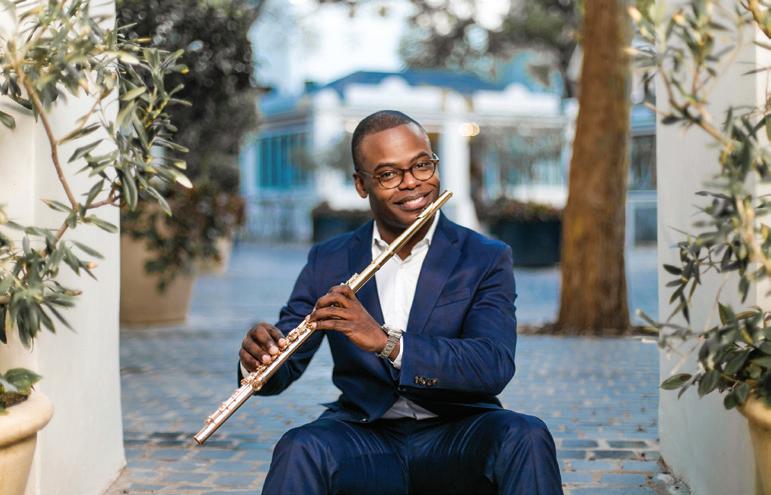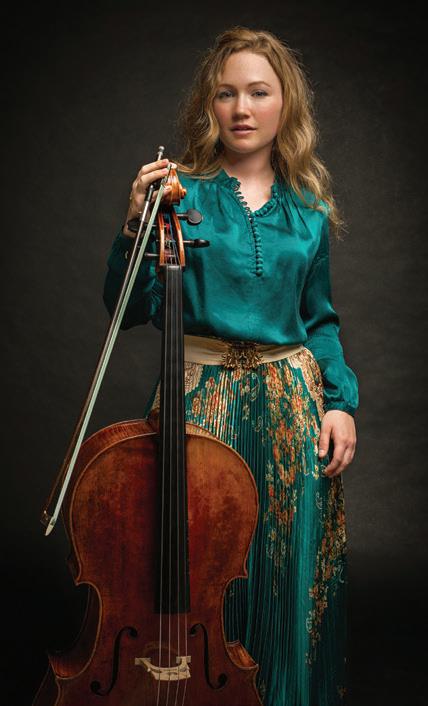
6 minute read
MUSIC AMID THE RED ROCKS
Moab Music Festival Returns For Its 31st Season
Written by Sharon Sullivan
MARGARET MERCER RECALLS THE EXCITEMENT OF BOUNCING OVER WAVES WHILE ZIPPING DOWN THE COLORADO RIVER IN A JET-BOAT TO AN OUTOF-THE-WAY GROTTO WHERE A LIVE CONCERT AWAITED. AN EVEN MORE THRILLING MOMENT TRANSPIRED WHEN CUBAN CLARINETIST AND ALTO SAXOPHONE PLAYER PAQUITO D’RIVERA BEGAN PLAYING HIS CLARINET AT THE SITE. THE GRAMMY-AWARD-WINNING ARTIST PLAYED A FEW NOTES – THEN, A MOMENT LATER THE SOUNDS ECHOED FROM ACROSS THE RIVER.
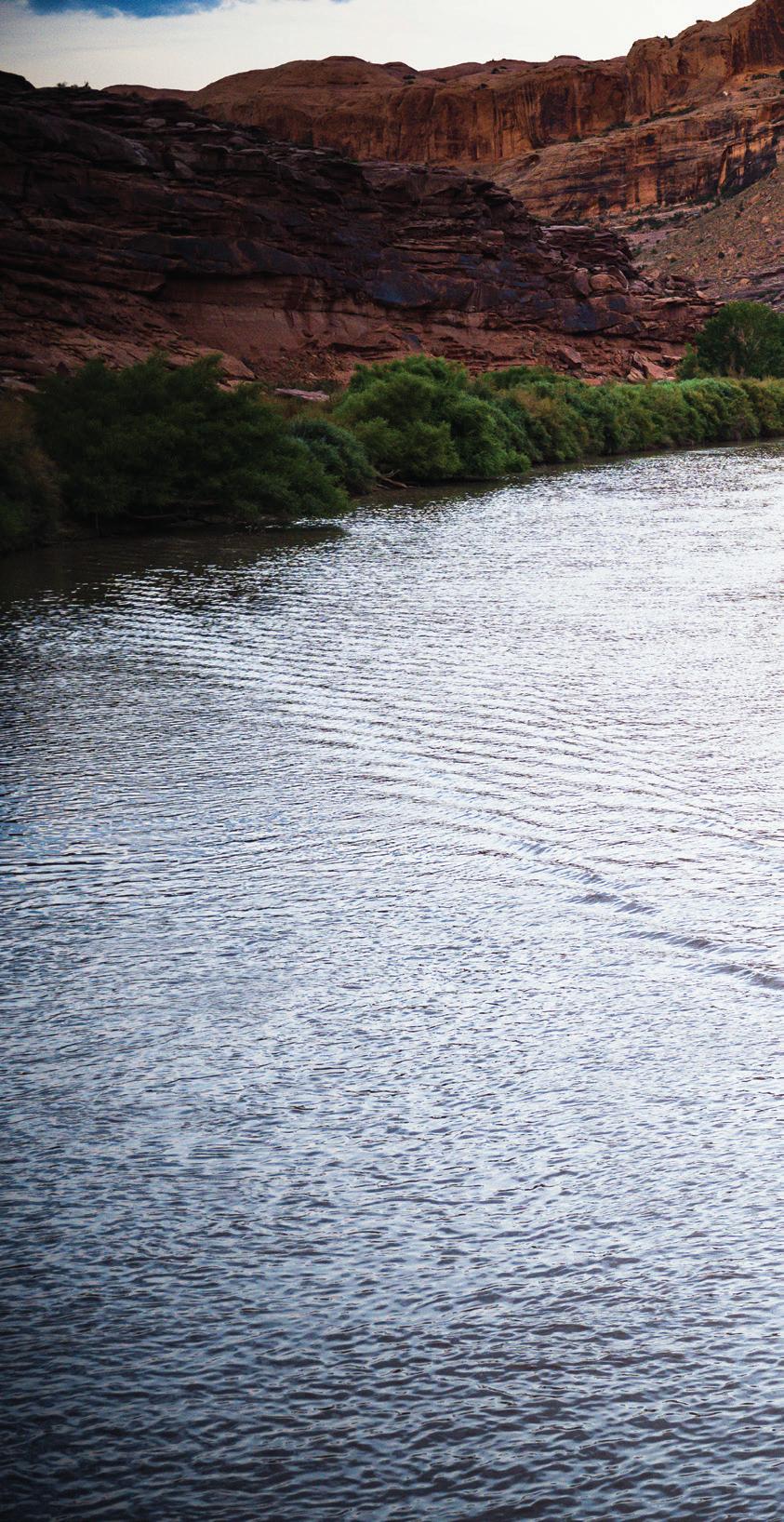
“The musicians play in this natural amphitheater – you can’t get that in any concert hall,” says Mercer, a New York City resident who has attended every Moab Music Festival (MMF) since 2009. “They (even) haul in a grand piano!”
As a former program director for a Manhattan classical radio station in NYC, Mercer has experienced many musical venues over the years, but says none compare to the MMF’s grotto concerts. “There’s nothing as spectacular as that,” she says. “You can scramble up the red rocks and sit on a ledge and look down at the musicians” (or sit comfortably on one of the folding chairs set up in advance). “The music bounces off the rocks.”
The Moab Music Festival’s 31st season happens August 21 through September 15, when world-renowned musicians perform chamber music, jazz, and traditional music in a number of outdoor venues around Moab. Music festival co-founder and Artistic Director Leslie Tomkins describes the experience as “profound.”
In addition to the grotto concerts, live music is performed outside Red Cliffs Lodge alongside the Colorado River. There’s a free community concert at Old City Park; a performance at Sorrel River Ranch; a private ranch concert; plus “music hikes” where concertgoers walk a mile into a wilderness area where classical musicians tune their instruments as hikers arrive at the site. There are also overnight rafting trips – on the Colorado, and San Juan rivers, where musicians perform daily concerts.
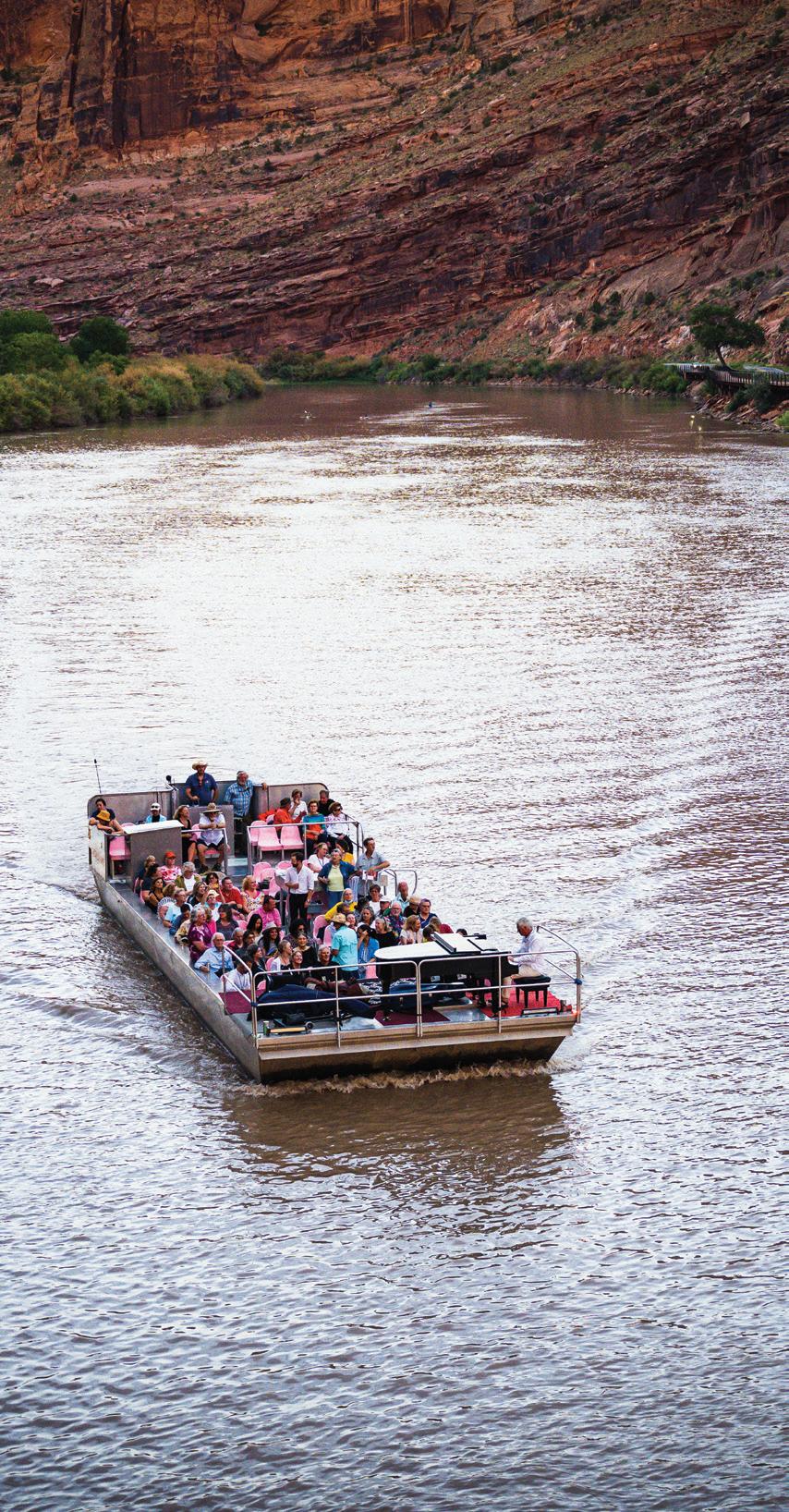
A few indoor venues exist, too – like the new Red Earth, a glass house venue at the mouth of Seven Mile Canyon. Most concerts happen outside, however, where the song of a canyon wren or a raven’s call often add their voices.
While much of the music is classical, you don’t necessarily have to be “enchanted” with the genre to enjoy the festival, says Tomkins. “They are approachable concerts,” she adds.
“They’re hosted to give context for what you’ll be hearing. People always respond to the quality.”
The festival includes new contemporary music, as well as older, well-known compositions. “There are all sorts of fun things,” Mercer says, like a very memorable performance by The Manhattan Transfer, a Grammy-award winning vocal band, a few years ago, “Anyone who loves to dip into all kinds of music cannot possibly be disappointed. It’s an unbelievable experience for sure,” she says.
The festival offers something new this year with the Indi pop trio BAILEN performing the Ranch Concert – a September 8 fundraiser for the festival’s education program. Each year the festival nonprofit gives scholarships to five Grand County students for music lessons or camps; performs concerts at school assemblies; and coordinates a summer string camp for students ages 6 to 18 in southeast Utah.
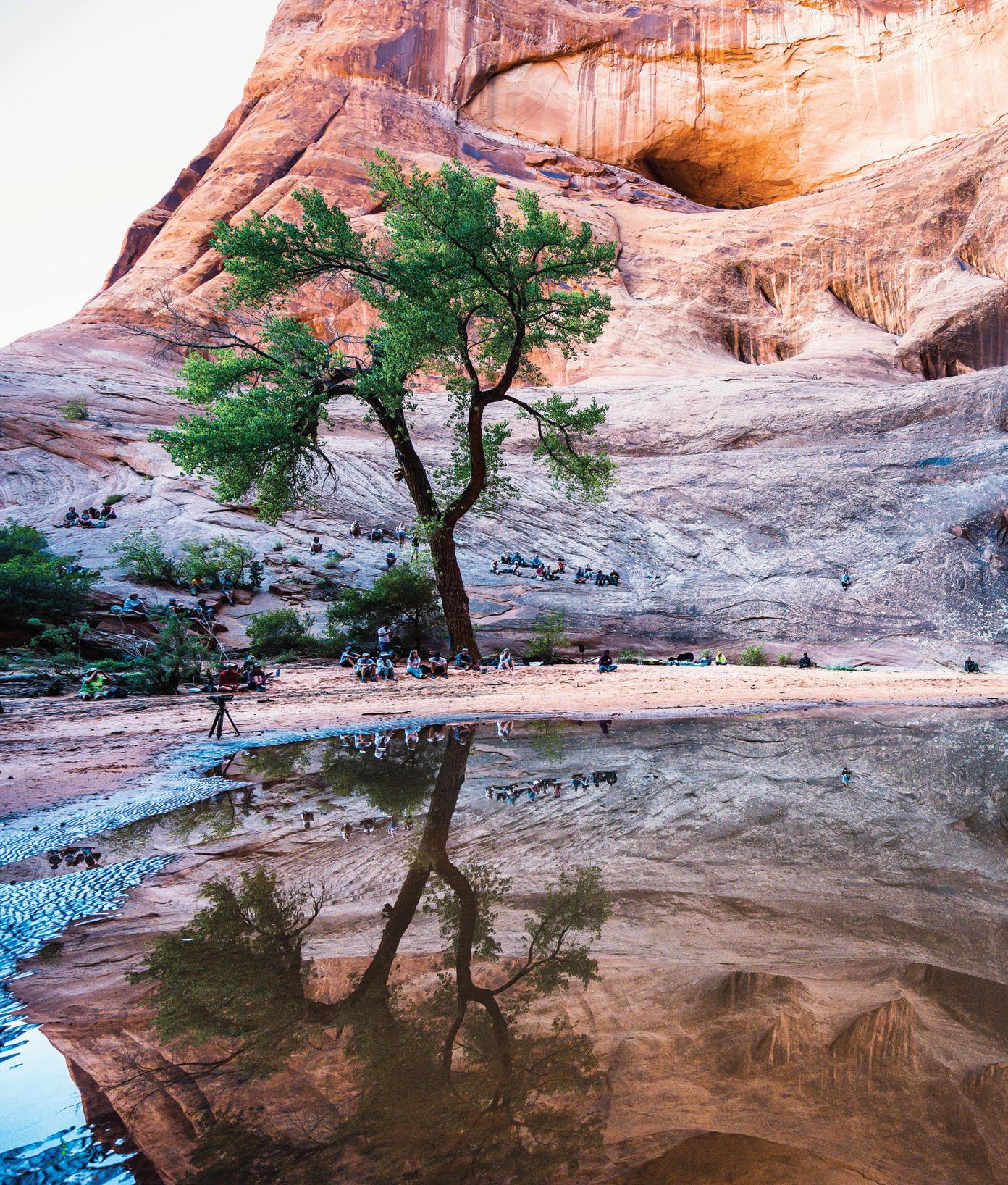
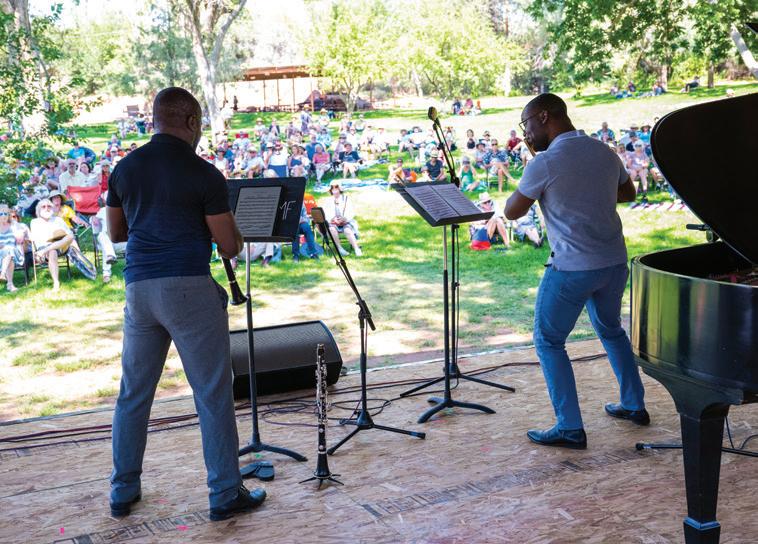
On August 26, in honor of iconic composer and pianist Sergei Rachmaninoff’s 150th birthday, a piano marathon at Star Hall will feature three different concerts by young pianists. Onsite food trucks will offer food for snacks, refreshments and dinner in-between concerts.
At Red Cliffs Lodge, on September 2, a concert celebrating Scott Joplin’s ragtime music will take place. And on September 9, at Sorrel River Ranch, Tomkins says Salt Lake City’s Hot House West Swing Orchestra will perform “hot jazz from the 20s, 30s, and 40s.”
Water
Each year the MMF includes a theme or centerpiece event. Last year’s event focused on Native American composers. A couple of years ago the festival formed a Commissioning Club to support living composers and create new works that debut at the festival. Last year’s festival featured three new pieces by indigenous composers.
In 2021, the festival featured actor and author George Takei, who collaborated with Japanese-American composer Kenji Bunch to present a poignant program about Takei’s experience as a child growing up in a Japanese-American internment camp during World War 2.
This year’s theme is water – specifically the Colorado River, which carved out Moab’s stunning red rock canyons. The Colorado River has been in the national news lately due to the decades-long drought in the region, and the over-allocated river. “We see all the time about how the Colorado River is in trouble,” Tomkins says. “Also, I have seen changes over the past 30 years. It’s hotter; the landscape is different.
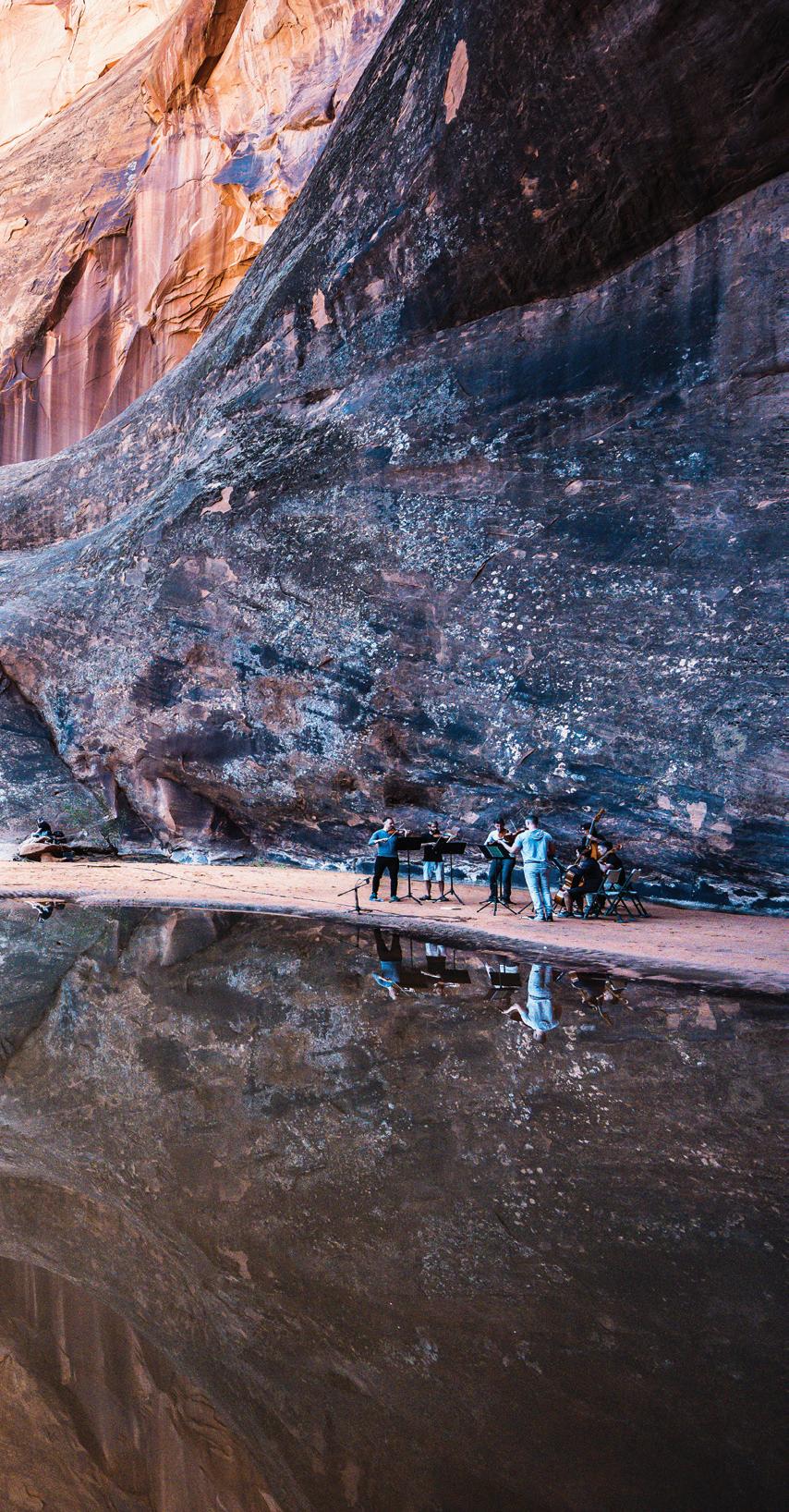
“The Colorado River is a huge part of who we are. We have concerts down the river, raft trips. Resorts, where concerts are held, sit next to the river. Lots of arts, music organizations over the years have been responding to things that are happening in the world. We felt we should address what’s happening – or we would be remiss, as a cultural organization.”
Throughout the festival, concertgoers will hear river-inspired music, including a newly commissioned piece by percussionist Pius Cheung, who was asked to pay homage to the Colorado River – the lifeblood of the community, region and festival. He titled his composition Samsara –a Sanskrit word meaning “cycle of life.”
Cheung is an Associate Professor and Chair of the Percussion Area at the University of Oregon, and has performed at Carnegie Hall, the Kennedy Center, National Centre for the Performing Arts in Beijing, National Concert Hall in Taipei, Kyoto Arts Center in Japan, plus numerous music festivals around the world.
His new composition includes violin, clarinet, cello, piano, with Cheung playing the marimba and circular metal discs called crotales. The musicians use their instruments to depict the sounds and feelings of water – it’s flow, rain, and flooding. Samsara’s world premiere will take place on the lawn of Red Cliffs Lodge, September 3.
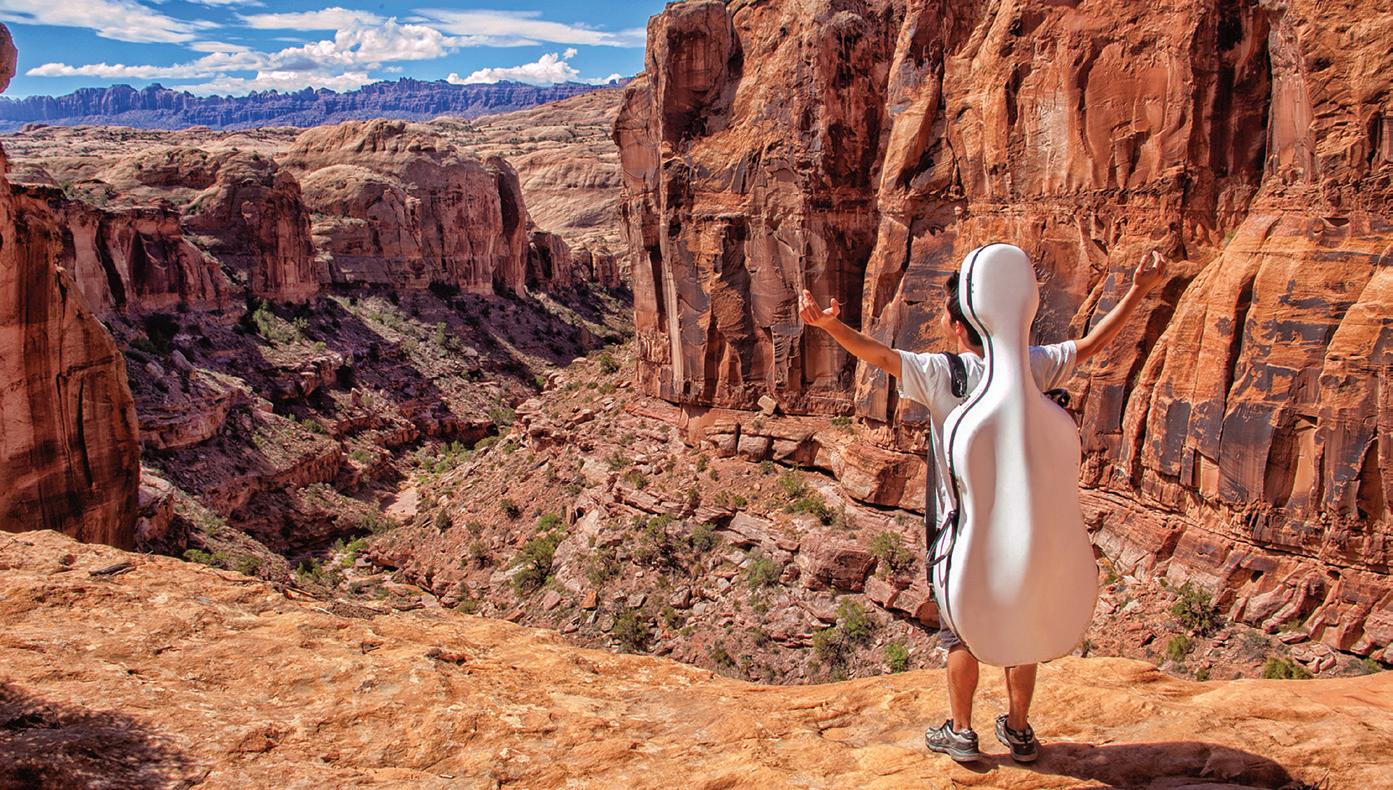
Cheung performed previously at the Moab Music Festival in 2018. “Last time I didn’t play outside,” he recalls. While Cheung said he’s played plenty of outdoor concerts over the years, nothing compares to the Moab Music Festival, this landscape, and its natural acoustics. “I’m looking forward to this visit. Earth is the venue.”
Birth Of A Festival
Tomkins, a violist, and Michael Barrett, a pianist, were both New York-based musicians when they founded the Moab Music Festival in 1992. They were vacationing when Barrett introduced Tomkins to Moab for the first time. “I got to Moab and went crazy for the rocks,” she recalls. “I had a profound experience. I wanted to be amongst them as much as possible.”
Barrett and Tomkins had been talking about starting a music festival somewhere in the West. They revisited Moab the following year, met with residents and community leaders, formed a board of directors for their nonprofit organization, and began planning their first Moab Music Festival event. The festival held its first season of concerts in 1992.
Moab resident Amy Wieser was hired this past spring as the festival’s new executive director. “She loves music, is outdoorsy, and we’re really happy that she’s joined us,” Barrett says.
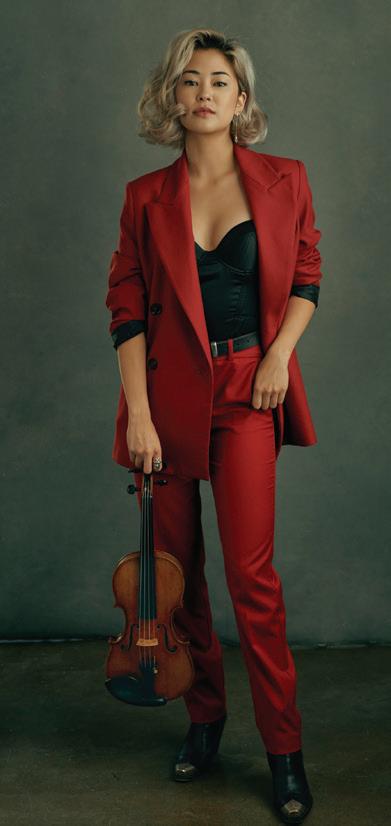
John Weisheit, Conservation Director and cofounder of Living Rivers and Colorado Riverkeepers, a Moab-based organization that advocates for healthy rivers, was tapped for his water expertise regarding this year’s water theme.
Weisheit has been involved with the Moab Music Festival since its inception when he worked for Tag-A-Long Expeditions as a rafting guide. The festival initially hired the company to lead their river trips. In the beginning, Weisheit drove jet boats, while his wife Susette led whitewater rafting trips for donors – river trips that included glassware, tablecloths and fine meals.
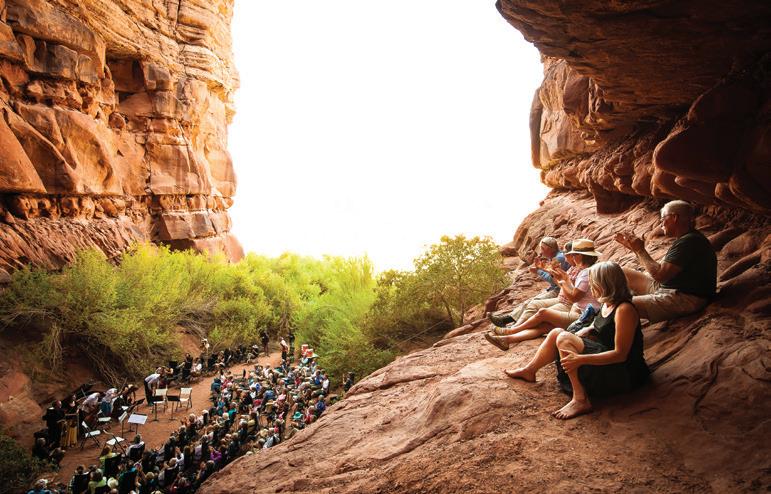
He recalls how at the end of the day, after their scheduled performances, the musicians continued to play casually around the campsite, sometimes lullabying guests to sleep. “The river is listening to that music, too,” Weisheit says. “So, it’s a gift to a gift.”
There will be a free screening of the documentary River at Star Hall, on Wednesday, August 23. Also free to the public is the Rocky Mountain Power Community Concert at Old City Park, which happens September 4, at 2 p.m.
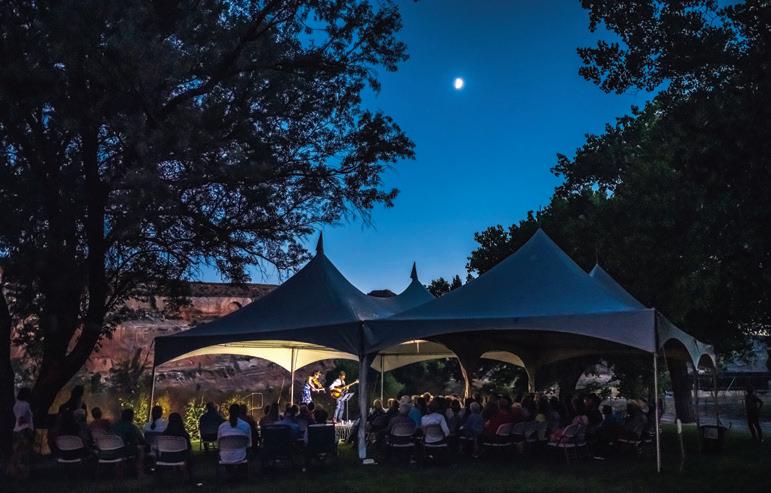
Barrett says he attends as many events as he can during the three-week festival – when he’s not rehearsing (he and Tomkins also perform during the festival). “Every concert is so special; there are no fillers,” he says. “All the artists are spectacular. Every concert is different. That’s the beauty of the festival.” n
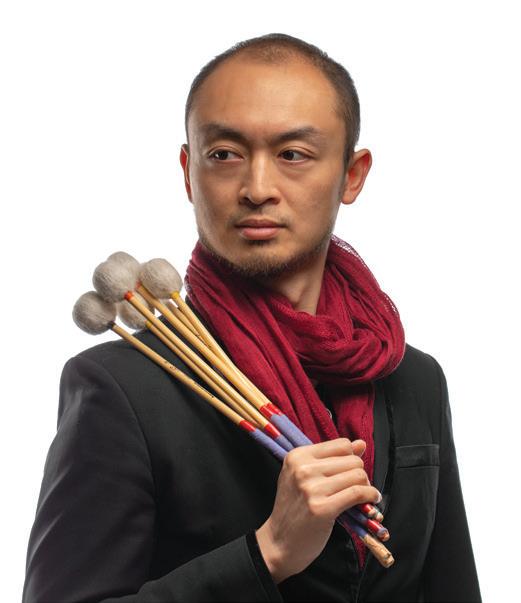
For tickets, or more information visit: www.moabmusicfest.org
